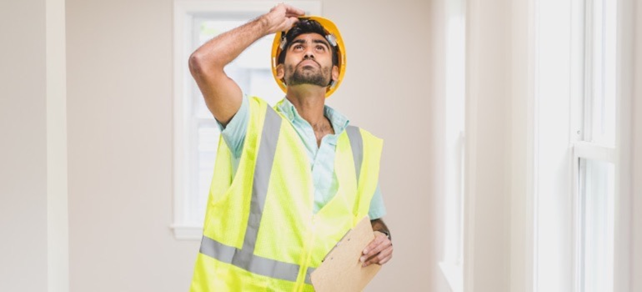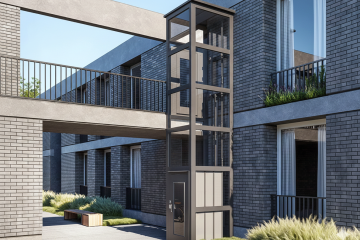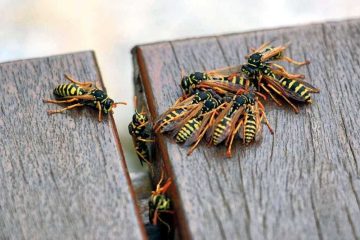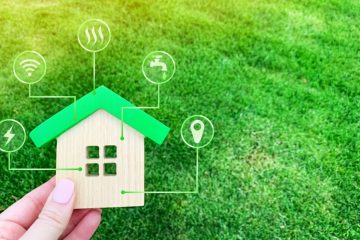Essential Home Inspection Tips for New Jersey Homeowners

A thorough home inspection is an indispensable step in the home-buying process. It provides crucial insights into the property’s condition and helps you make informed decisions. If you’re a New Jersey homeowner embarking on this exciting journey, understanding the essential home inspection tips specific to your region is paramount. This article should equip you with the necessary knowledge to conduct a successful home inspection in the Garden State. From hiring pest inspection professionals separately, and ensuring HVAC maintenance before moving in, to handling unexpected discoveries like mold. Join us as we delve into the key considerations and expert advice that will empower you to make the best choices when inspecting a home in New Jersey.
Plumbing System Inspection
Conducting a plumbing system inspection is of utmost importance when assessing the overall condition of a home. This crucial step allows you to detect potential leaks, notice signs of water damage, and assess the condition of pipes and fixtures. If any issues are discovered, you should hire a professional plumber to address the necessary fixes. In some cases, negotiating with the seller to cover the expenses can be an option. During the inspection, some key components to assess include:
- water supply lines,
- drains,
- the sewage system,
- the water heaters,
- sump pumps.
Thoroughly examining these elements can help you ensure that the plumbing in your potential home is properly functioning. Additionally, it can help you avoid costly repairs down the road.
Dealing with Mold during the Inspection
Discovering mold during a home inspection can be a serious cause for concern. Especially in New Jersey where humid climates can promote its growth. Recognizing signs of mold, such as visible growth and musty odors, is essential in identifying potential issues. If mold is found, consulting a professional mold removal company specialist is crucial for a thorough assessment and proper remediation.
Negotiating repairs or remediation with the seller would be your next move in this situation. All of this should help ensure that the necessary actions are taken to address the mold issue. It is also important to evaluate the extent of the mold damage to determine the scope of the remediation process. If you find that removal would be too expensive or that the damage has gone too far, it might be smarter to pull out of the sale. One of the most essential home inspection tips we can offer is that you have to be ready to pull out when you see fit.
Foundation and Structural Inspection
Foundation and structural inspections are vital to ensure the stability and safety of a property. These inspections help detect any cracks, settlement, or other issues that may compromise the integrity of the building. Key aspects to evaluate during a foundation and structural inspection include the condition of the following:
- foundation walls,
- footings,
- support structures,
- beams,
Identifying and addressing these concerns early on can prevent costly repairs in the future. When moving into a property with known weak points in the foundation or structure, experts from All Season Movers NJ recommend informing movers and handymen to avoid exacerbating any existing issues.
Electrical System Inspection
Electrical system inspections are crucial for ensuring the safety and code compliance of a home. By conducting these inspections, potential fire hazards can be identified and addressed promptly. Some key things to focus do during an electrical system inspection are:
- Assessing the condition of electrical panels and circuit breakers;
- Examining the wiring and outlets;
- Evaluating the effectiveness of grounding and bonding.
Thoroughly inspecting these components helps mitigate the risk of electrical malfunctions, shocks, or fires. One of the most essential home inspection tips when it comes to electrical wiring is to call a professional. No matter how small the issue you find might seem, trying to DIY electrical repairs is simply too dangerous.
Roof Inspection
Roof inspections hold great significance in New Jersey as they help identify roof defects, and leaks, and ensure the overall condition of the roof. By conducting these inspections, homeowners can evaluate the integrity of the shingles, as well as the condition of the flashing. Some of the other things that can be evaluated during a roof inspection include:
- The quality of the roof covering;
- The functionality of the gutters and downspouts;
- The chimneys and skylights.
Thoroughly examining these components allows homeowners to address any potential issues before they escalate. Ensuring a durable and watertight roof that can withstand the diverse weather conditions experienced in New Jersey is paramount. Roof inspections shouldn’t just be conducted before buying a home. They are an essential part of proper home maintenance. Regular inspections can help safeguard the property from costly water damage and preserve its structural integrity.
Hiring a Pest Inspection Professional
When it comes to home inspections, hiring a separate pest inspection professional is one of the most essential home inspection tips for New Jersey homeowners. This additional inspection serves two important purposes: identifying potential pest infestations that are common in the area and protecting against the damage caused by pests. While certain pests, like termites, may not be as common in New Jersey, there are still ways for a termite infestation to be caused. For example, they can easily be brought over through wooden furniture or other means, establishing colonies in no time.
During a pest inspection, the key areas to focus on can be separated into two categories:
- The exterior- This includes the foundation, walls, and entry points.
- The interior – This can include basements, attics, and crawlspaces.
Next Steps after the Home Inspection
After completing the home inspection, the next steps in the home-buying process involve closing the sale and arranging for the move. During the closing process, it is common to negotiate repairs or credits with the seller based on the findings of the inspection. This negotiation allows for necessary repairs or adjustments to be made before the final agreement is reached. It is also crucial to revisit the purchase agreement to ensure that all agreed-upon terms and conditions are properly documented.
When it comes to the move, hiring professional movers is highly recommended. To ensure a smooth and stress-free transition, it is essential to research reputable moving companies in New Jersey. Obtaining quotes, checking reviews, and verifying their credentials will help you find what suits your needs. Taking these necessary steps after the home inspection brings homeowners closer to settling into their new property seamlessly.
To wrap up
New Jersey homeowners embarking on the home-buying process should prioritize a thorough home inspection. By following the essential home inspection tips provided in this article, you can ensure a confident and informed purchase. Each aspect of the inspection plays a crucial role in the overall safety and condition of the property. Remember to negotiate, be ready to pull out, and do certain repairs, such as water leaks, before you move into the home. With a diligent approach and expert guidance, New Jersey homeowners can embark on their new chapter with confidence and a solid foundation.












